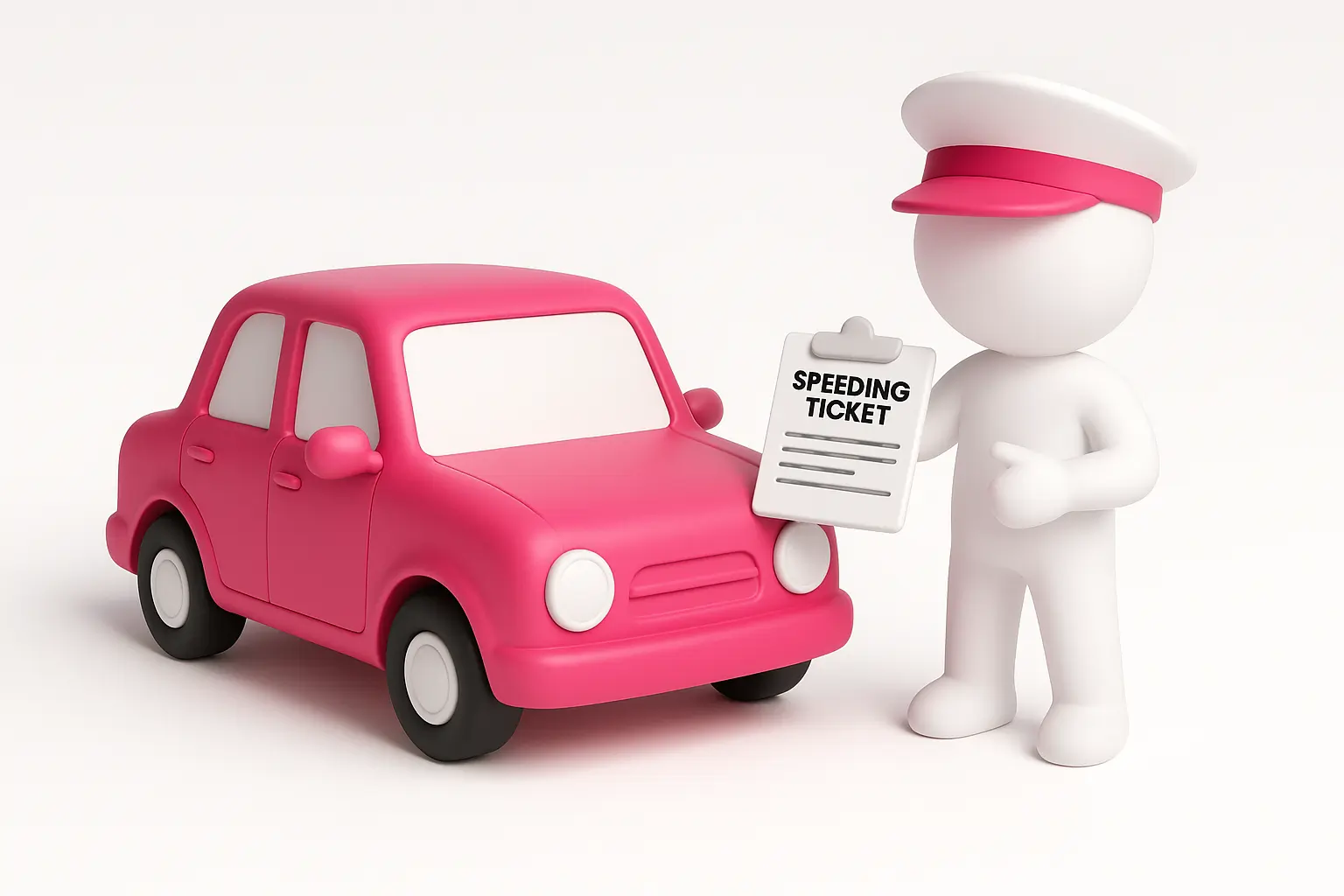Citations and tickets are the same thing: the legal document you get from the police for breaking traffic rules. The only difference is the word choice: citation is the official term law enforcement uses, while ticket is what most people say.
If you recently got a ticket, your insurance rates will likely increase. Jerry can help; we’ve helped over 33,722 drivers in the last year find the right coverage after getting a driving violation.
| “Citation” | “Ticket” |
|---|---|
| Used by police officers and courts. | Used by everyday drivers. |
| Appears on legal documents and forms. | What you’ll likely hear in casual conversation. |
| More formal language in government systems. | Popular term in media and advertising. |
It doesn’t matter whether it’s labeled a ticket or a citation, both include the same information: your personal and vehicle details, the violation, citation number, and instructions on how and when to respond.
The Jerry difference: Worried a ticket will spike your rate? Jerry compares personalized quotes in minutes and takes care of the switch.

Jerry pulls up to 20 quotes from top rated carriers.
The different types of citations
Your insurance rates will likely increase after most moving violations. Jerry drivers with no citations pay an average of $183 to $408 a month for full coverage, while those with citations pay $210 to $453.
Types of Violations and Their Impact
🚦 Moving violations
Happen when your car is in motion. These types typically raise your insurance rates.
e.g. speeding or running a red light
🅿️ Non-moving violations
Occur when your car is stationary. They usually don’t affect your rates.
e.g. parking tickets or expired tags
🚨 Major violations
Involve serious safety risks and often lead to large rate increases.
e.g. DUI or reckless driving
⚠️ Minor violations
Smaller infractions that can result in modest rate increases.
e.g. rolling stops or failing to signal
Key takeaway: While tickets can raise insurance rates, maintaining a clean driving record going forward helps those increases drop off over time, as most insurers look back only 3-5 years.
Jerry can help you find quotes after a ticket
Getting a citation doesn’t mean you’ve got to be stuck with a high insurance rate from your current insurance company. Jerry makes it easy to find coverage, even with a ticket on your record.
The Jerry app can help you compare car insurance quotes — including from insurers specialized in working with traffic violations — plus identify savings, manage the switching process and monitor rates for better deals.
Jerry recommends: Start shopping with Jerry right after a citation to lock in a better rate before your current insurer raises your premium at renewal.
What to do if you get a ticket
When facing a traffic citation, you have three main options:
💳 Pay the fine.
🤝 Request mitigation by contacting and asking for leniency. This means you admit the violation but ask for a reduced penalty.
⚖️ Contest it in court if you believe you are innocent.
Why it matters: Don’t ignore a citation. Doing so can lead to extra fines, a suspended license, or even a warrant for your arrest.

It only takes 2 minutes to sign up at Jerry.
FAQ
-
❓ Do citations and tickets mean exactly the same thing?
-
📅 How long does a citation stay on my record?
-
🚗 Will a parking ticket affect my insurance?
-
💰 Can I get insurance with multiple citations?
-
📞 Should I tell my insurance company about a citation?
Methodology
Data included in this analysis comes from policies that Jerry has quoted within the last 6 months for drivers with a clean record and that have full coverage, unless stated otherwise. Data related to violations, accidents or credit scores pull from quote data from the last 18 months. Jerry services 48 states and offers a range of insurance companies to choose from.

Ben Moore is a writer and editor at Jerry and an auto insurance expert. He previously worked as a writer, editor and content strategist on NerdWallet’s auto insurance team for five years. His work has been published in The Associated Press, Washington Post, Chicago Sun-Times, MarketWatch, Nasdaq and Yahoo News. He also served as a NerdWallet spokesperson, with appearances on local broadcast television and quotes in Martha Stewart and Real Simple magazine.
Ben has an extensive background in digital marketing, working on affiliate and programmatic advertising campaigns for brands like Cabela’s, H&R Block and Sears. He holds a bachelors degree in marketing from Olivet Nazarene University.






